

October 2017 Edition!
AIU News + Graduates + Essay + Interview + Education + Culture + Science + Technology + Art + Design + Body + Mind + Spirit + Environment + Human Rights + Professional life + Telecommunications + About AIU


AIU News + Graduates + Essay + Interview + Education + Culture + Science + Technology + Art + Design + Body + Mind + Spirit + Environment + Human Rights + Professional life + Telecommunications + About AIU
 August
29, 2017.
One of our
graduates,
Samuel
Jos, has
published
his Thesis in 2 international
journals. His paper was
published in “Vishleshan
International
Journal of Engineering
& Management
(VIJEM)”
on June 2017, in
Volume 2 Issue 3. It
was also published in “BEST:
International Journal of
Management, Information
Technology and Engineering”
on June 30, 2017 in Volume
5, Issue 6 (Pages 29-48).
His published thesis can
be viewed here: vijem.com/
Issue/Vol2Iss3/Papers/
VIJEM_235_2017.pdf
Samuel Jos completed
a Master’s
program in Computer
Engineering
at AIU with honors
Cum Laude.
August
29, 2017.
One of our
graduates,
Samuel
Jos, has
published
his Thesis in 2 international
journals. His paper was
published in “Vishleshan
International
Journal of Engineering
& Management
(VIJEM)”
on June 2017, in
Volume 2 Issue 3. It
was also published in “BEST:
International Journal of
Management, Information
Technology and Engineering”
on June 30, 2017 in Volume
5, Issue 6 (Pages 29-48).
His published thesis can
be viewed here: vijem.com/
Issue/Vol2Iss3/Papers/
VIJEM_235_2017.pdf
Samuel Jos completed
a Master’s
program in Computer
Engineering
at AIU with honors
Cum Laude.
 September
12, 2017. We
would like
to congratulate
one
of our AIU
Academic
Advisors,
Prof. Dr. Jorge Vasconcelos
for his achievements. He has
recently published 3 books
and has a digital book that can
be downloaded. You can find
more about the books in the
following links:
September
12, 2017. We
would like
to congratulate
one
of our AIU
Academic
Advisors,
Prof. Dr. Jorge Vasconcelos
for his achievements. He has
recently published 3 books
and has a digital book that can
be downloaded. You can find
more about the books in the
following links:
 A young man from the oil
and gas rich area of Lake
Kutubu, Southern
Highlands Province,
is prepared to help
his community to
manage landowner
funds well to benefit
the people, after
graduating from one
of the most prestigious universities
in the United Stated.
Asi Ibusubu, from Daga
village, Pimaga, Lake Kutubu,
one of the remotest part of the
province, also became one of
the first person from the area
to graduate with a Bachelor of
Science Degree, majoring in
banking and finance, specialising
investment management
in the School of Business and
Economics at the Atlantic International
University in the
online program.
Ibusubu who also has a
Degree from the University of
PNG said attaining a degree
from a university in the United
States of America is a milestone
achievement for himself,
his family, tribe, province and
the country.
“I have acquired a lot
of knowledge from this university, which makes it
far more than a step between
college and the real world but
rather a stepping stone to my
future,” he said.
He said Papua New Guinea
is rich in natural
resources that generate
an estimated
K13.42 billion that
assist in the overall
development.
The US$19 billion
PNG LNG projects
double the Papua New
Guinea’s economy.
He said landowners receive
royalties and equities and other
non-cash benefits for social,
business and infrastructure
developments but they spend
it on unplanned projects.
He said there is a need to
focus on the delivery of core
social functions, such as the
provision of a stable and
non-distorting policy aimed
at building and sustaining the
development
of a modern
market, and
legislative and
regulatory
frameworks,
social business,
social services,
social security
and social
infrastructure
which would lead to the improvement
in the delivery of
essential services to all Papua
New Guineans.
He said he learnt a great
deal about “the creation
of social business to guide
the benefits of oil and gas
projects for the affected
indigenous landowners of
Papua New Guinea” that he
can now be able to draw-up
their development guidelines
and policies to manage
and guide the money
derived from the oil and gas
projects.
“This means, I have developed
a concept on how to
manage landowner funds that
government can direct those
funds through proper mechanism
to discards misuse and
abuse of landowner funds.
“The existing management
mechanism is weak and unable
to control and guide the
landowner monies,” he said.
A young man from the oil
and gas rich area of Lake
Kutubu, Southern
Highlands Province,
is prepared to help
his community to
manage landowner
funds well to benefit
the people, after
graduating from one
of the most prestigious universities
in the United Stated.
Asi Ibusubu, from Daga
village, Pimaga, Lake Kutubu,
one of the remotest part of the
province, also became one of
the first person from the area
to graduate with a Bachelor of
Science Degree, majoring in
banking and finance, specialising
investment management
in the School of Business and
Economics at the Atlantic International
University in the
online program.
Ibusubu who also has a
Degree from the University of
PNG said attaining a degree
from a university in the United
States of America is a milestone
achievement for himself,
his family, tribe, province and
the country.
“I have acquired a lot
of knowledge from this university, which makes it
far more than a step between
college and the real world but
rather a stepping stone to my
future,” he said.
He said Papua New Guinea
is rich in natural
resources that generate
an estimated
K13.42 billion that
assist in the overall
development.
The US$19 billion
PNG LNG projects
double the Papua New
Guinea’s economy.
He said landowners receive
royalties and equities and other
non-cash benefits for social,
business and infrastructure
developments but they spend
it on unplanned projects.
He said there is a need to
focus on the delivery of core
social functions, such as the
provision of a stable and
non-distorting policy aimed
at building and sustaining the
development
of a modern
market, and
legislative and
regulatory
frameworks,
social business,
social services,
social security
and social
infrastructure
which would lead to the improvement
in the delivery of
essential services to all Papua
New Guineans.
He said he learnt a great
deal about “the creation
of social business to guide
the benefits of oil and gas
projects for the affected
indigenous landowners of
Papua New Guinea” that he
can now be able to draw-up
their development guidelines
and policies to manage
and guide the money
derived from the oil and gas
projects.
“This means, I have developed
a concept on how to
manage landowner funds that
government can direct those
funds through proper mechanism
to discards misuse and
abuse of landowner funds.
“The existing management
mechanism is weak and unable
to control and guide the
landowner monies,” he said.

 One of our graduates,
Liliana Graciela Fedeli,
published the book “Gypsies:
a look that many do not see”.
She is a professor in History,
Specialist, and PhD in Regional
History, Graduated from the
National University of Comahue,
and AIU. She teaches
middle and higher level, making
special collaborations for
local publications.
The book was presented on
March 31. It is published by
Editorial Universitaria Educo
with a prologue written by Dr.
Enrique Mases.
The book pretends to be a
perfectible contribution from a
social history that breaks with
the old patterns of omissions
in traditional history.
One of our graduates,
Liliana Graciela Fedeli,
published the book “Gypsies:
a look that many do not see”.
She is a professor in History,
Specialist, and PhD in Regional
History, Graduated from the
National University of Comahue,
and AIU. She teaches
middle and higher level, making
special collaborations for
local publications.
The book was presented on
March 31. It is published by
Editorial Universitaria Educo
with a prologue written by Dr.
Enrique Mases.
The book pretends to be a
perfectible contribution from a
social history that breaks with
the old patterns of omissions
in traditional history.

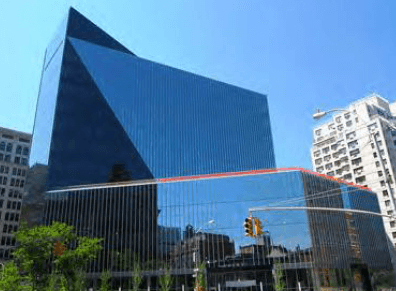

| Mario Fernando Persello Bachelor of Science Organizational Development Argentina |
Reina Michelle Tillett Bachelor of Education Mathematics Education Belize |
Lucio Daniel Bakovic Barrientos Bachelor of Marketing Marketing Bolivia |
Weymar Felipe Quiroz Lazcano Bachelor of Science Industrial Safety Bolivia |
Guiryanan Olivier Doctor of Philosophy Business Administration Chad |
Ruben Daniel Arias Barredo Bachelor of Science Industrial Engineering Chile |
| Leon Ntwarabakiga Bachelor of Business Administration International Business China |
Lizbeth Alexandra Acuña Merchan Doctor of Science Health Economics Colombia |
Miryam Amparo López Villegas Bachelor of Science Psychology Colombia |
Fernando M. Nuñez Bachelor of Legal Studies Legal Studies in Immigration Dominican Republic |
Gregorio Deoleo Perez Bachelor of Mechanical Engineering Automotive and Diesel Mecha nics Dominican Republic |
Fransinl Alcivar Castillo Prado Doctor of Philosophy Legal Studies Ecuador |
| Andrea Estefanía Vera Velásquez Bachelor of Business Administration Business Administration Ecuador |
Ariadna Reyes Ávila Bachelor of Science Psychology Ecuador |
Ricardo Alejandro Rivas Callejas Bachelor of Science Architecture El Salvador |
Nasser Mohammed Ahmed Master of Environmental Engineering Water Resources Ethiopia |
Solomon Fisseha Kebede Master of Science Hydraulic and Environmental Engineering Ethiopia |
Tessema Bekele Woldegiorgis Doctor of Business Administration Business Administration Ethiopia |
| Viliame (Bill) Raikuna Bachelor of Business Administration Economics Fiji Islands |
Florence Abena Taylor Bachelor of Human Resource Management Human Resource Management France |
George Luis Seba Caldas Bachelor of Science Physical Anthropology and Archa eology French Guiana |
Erick David Flores Calderón Bachelor of Business Administration Business Administration Guatemala |
Nicolas David Reyes Vejarano Bachelor of Science Industrial Engineering Honduras |
Iris Zulema Carranza Rivera Bachelor of Science Psychology Honduras |
| Vivian Wan Wing Ching Doctor of Philosophy Quality Management Hong Kong |
Syed Shujaat Ahmad Bukhari Doctor of Philosophy Journalism India |
Wayne Thompson Doctor of Philosophy Educational Administration Jamaica |
Iwanaga Oscar Bachelor of Industrial Engineering Heat Treatment of Steel Japan |
Jefferson Menadic Karkor Bachelor of Science Information Tech |
Alhousseyni Morba Master of Project Management Project Management Mali |
| Marcela Yaneth Jimenez Urzua Doctor of Science Psychology and Neuroscience Mexico |
Crisantos Obama Ondo Doctor of International Relations International Relations and Diplomacy Morocco |
Formosa A. Ramos B. Maholela Chongo Doctor of Business Administration Economics Mozambique |
Noldino Alfredo Paruque Master of Science Public Administration Mozambique |
Aristides Fernando Parruque Bachelor of Science Information Systems Mozambique |
Arc. Austin Ilenre Emuan Doctor of International Relations International Business Nigeria |
| Hassan Ndanusa Doctor of Philosophy Business Management Nigeria |
Mustapha Alhaji Bashir Doctor of Philosophy Geomorph ology Nigeria |
Stanley Ebere Amam Doctor of Philosophy Project Management Nigeria |
Godson-Nwankwo, Uche Lydia Bachelor of Science Human Resources Nigeria |
Khalid Abubakar Isah Master of Public Health Public Health Nigeria |
Aminu N. Mohammed Bachelor of Accounting Accounting Nigeria |
| Olufemi Oluseye Kehinde Doctor of Philosophy Electronic Engineering Nigeria |
Andrés Florentín Benítez Ruíz Díaz Bachelor of Economics Economics Paraguay |
Maria Alexandra Guabloche Villar Bachelor of Education Education Peru |
Carmen Liliana Gogny León Bachelor of Hospitality Management Hospitality Management Peru |
Lizyanira Vidal Sanjurjos Doctor of Philosophy Management and Leadership Puerto Rico |
Sonia Esther Cedeño Aponte Doctor of Education Educational Management Puerto Rico |
| Harry Valentín González Doctor of Philosophy Education Puerto Rico |
Zivanai Makurira Bachelor of Science Quantity Surveying South Africa |
Lucas Nguema Esono Mbang Bachelor of International Relations International Relations Spain |
Ebrima Mboob Bachelor of Business and Economics Strategic Management Sudan |
Mohammad Maksudur Rahman Master of Business Administration Business Management Tanzania |
Abel Mwebembezi Doctor of Philosophy Social Sciences Uganda |
| Philip Alphonzo Johnson Master of Science Criminology USA |
Carlos Orlando Díaz Campos Bachelor of Business and Economics Business Administration USA |
Nazario Luis Noor Bachelor of Science Computer Science USA |
Kenia Justo Panuceno Bachelor of Science Psychology USA |
Maryud Milena Cortes Restrepo Bachelor of Science Psychology USA |
Clement Chibili Mugala Doctor of Philosophy Business Management Zambia |
| Wilson Chibale Bachelor of Science Civil Engineering Zambia |
Elizabeth Mwelwa Chiyende Master of Public Health Public Health Zambia |
William Kabazo Mumba Master of Business Administration Business Administration Zambia |
Patrick Zonke Bachelor of Business Management Operations Management Zimbabwe |
||
 Luis Cho
Luis Cho  Muntari Yaro
Muntari Yaro  Praveen Moolchandani
Praveen Moolchandani Shaheen Jauffur
Shaheen Jauffur
| eDimension of food scurity |
Valuation (0 to 5) |
Trends identified in field |
Solution for problem resolution |
| Physical AVAILABILITY of food |
1 | Lack production fields Lack of proper equipments Imports (to keep food supply in stock) |
Production of local food *Develop a better laws (rules) that affords the solution(s) in a pragmatic form, for example land availability |
| Economic and physical ACCESS |
1 | Rising poor population | Family Planning |
| Food UTILIZATION | 2 | Obesity & diabetes | Education |
| Food security “STABILITY“ | 1 | Country not structured to ensure stability |
Education |
| Potentially, French Guyane could have a score of 5 to all these items, if, among other things,forest products and native crops had received proper attention. |
|||

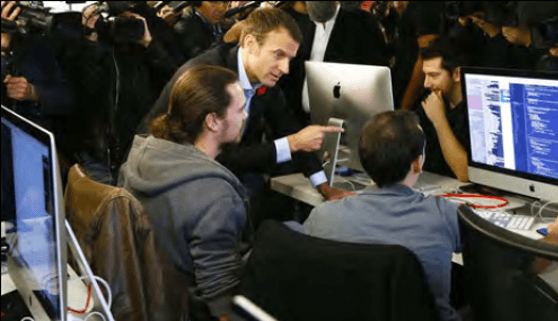 When you walk into École 42, a
teacher-less coding school in
Paris, a few things leap out at you: a
killer collection of provocative street
art, including an illustrated condom
machine at the front desk; iMacs as
far as the eye can see; and a palpable
buzz from the roughly 1,000 students
bustling around the building.
It is week two of la piscine (the
“swimming pool”), a one-month,
Hunger Games-like test students must
endure to get a place at the school. No
degrees or special skills are required
to apply, and those who are accepted
attend for free for three to five years.
Around 80% of students get jobs before
they finish the course; 100% are employed
by the end.
When you walk into École 42, a
teacher-less coding school in
Paris, a few things leap out at you: a
killer collection of provocative street
art, including an illustrated condom
machine at the front desk; iMacs as
far as the eye can see; and a palpable
buzz from the roughly 1,000 students
bustling around the building.
It is week two of la piscine (the
“swimming pool”), a one-month,
Hunger Games-like test students must
endure to get a place at the school. No
degrees or special skills are required
to apply, and those who are accepted
attend for free for three to five years.
Around 80% of students get jobs before
they finish the course; 100% are employed
by the end.
 Quick, do an experiment: Whip
out your phone and take a short
video. Trees outside your window, the
other people in line with you, whatever.
Now here’s a question: How did you
shoot it? Did you hold the phone sideways,
to get a horizontal, or landscape,
shot? Or did you hold it vertically?
Odds are you held it upright, which
means you’re helping to accelerate one
of the most underappreciated shifts in
the mediascape.
Quick, do an experiment: Whip
out your phone and take a short
video. Trees outside your window, the
other people in line with you, whatever.
Now here’s a question: How did you
shoot it? Did you hold the phone sideways,
to get a horizontal, or landscape,
shot? Or did you hold it vertically?
Odds are you held it upright, which
means you’re helping to accelerate one
of the most underappreciated shifts in
the mediascape.
 Water-based snow was recently
discovered on Mars –and it’s
weird. It only falls at night, happens in
a sudden snow explosion, and most of
the precipitation doesn’t make it to the
surface; it merely sublimates away into
a gas straight from a solid phase.
Ice, however, is pretty common on
Mars. Although it can take the form of
water ice, you’ve got a heck of a lot of
dry ice –frozen carbon dioxide– at the
Martian poles. It’s also pretty bonkers:
When temperatures rise, much of this
ice once again sublimates, and the atmosphere
gets a huge carbon dioxide
injection. When colder temperatures
remerge, the ice caps suddenly expand
in size again.
Water-based snow was recently
discovered on Mars –and it’s
weird. It only falls at night, happens in
a sudden snow explosion, and most of
the precipitation doesn’t make it to the
surface; it merely sublimates away into
a gas straight from a solid phase.
Ice, however, is pretty common on
Mars. Although it can take the form of
water ice, you’ve got a heck of a lot of
dry ice –frozen carbon dioxide– at the
Martian poles. It’s also pretty bonkers:
When temperatures rise, much of this
ice once again sublimates, and the atmosphere
gets a huge carbon dioxide
injection. When colder temperatures
remerge, the ice caps suddenly expand
in size again.
 With all the environmental
problems posed by global
phenomena like climate change, it’s
easy to forget that other, more directly
man-made threats endanger animals.
One such problem is the illegal wildlife
trade, which is estimated to be a $19
billion business worldwide.
One of the most at-risk animals
is the rhino, but you can’t exactly
protect rhino herds 24/7. That’s why
a mechanical engineer has a wacky
new idea: robotic rhinos. These babies
could stay with and track rhinos,
and alert patrols when poachers are
nearby.
With all the environmental
problems posed by global
phenomena like climate change, it’s
easy to forget that other, more directly
man-made threats endanger animals.
One such problem is the illegal wildlife
trade, which is estimated to be a $19
billion business worldwide.
One of the most at-risk animals
is the rhino, but you can’t exactly
protect rhino herds 24/7. That’s why
a mechanical engineer has a wacky
new idea: robotic rhinos. These babies
could stay with and track rhinos,
and alert patrols when poachers are
nearby.

 Your cells are coated with sugars
that store information and speak
a secret language. What are they trying
to tell us? Your blood type, for one –
and, potentially, that you have cancer.
Chemical biologist Carolyn Bertozzi
researches how sugars on cancerous
cells interact with (and sometimes
trick) your immune system. Learn
more about how your body detects
cancer and how the latest cancer-fighting
medicines could help your immune
system beat the disease.
Professor Carolyn Bertozzi is
a chemical biologist who invents
technologies and medicines based on
disease-causing sugar molecules.
Professor Bertozzi’s research interests
span the disciplines of chemistry
and biology with an emphasis on studies of cell surface sugars important
to human health and disease. She was
originally trained in organic chemistry
and immunology, and today her
research group works at the interface
of these two disciplines. They recently
made discoveries that link particular
sugars that coat the surfaces of cancer
cells with the ability of those diseasecausing
cells to avoid elimination by
the human immune system. Now her
research group is developing medicines
that attack cancer cell-surface sugars
so as to render the immune system
more potent at eliminating disease.
Bertozzi also studies other human
health problems including tuberculosis
infections and rare genetic disorders,
using tools from chemistry to power
biomedical research.
Your cells are coated with sugars
that store information and speak
a secret language. What are they trying
to tell us? Your blood type, for one –
and, potentially, that you have cancer.
Chemical biologist Carolyn Bertozzi
researches how sugars on cancerous
cells interact with (and sometimes
trick) your immune system. Learn
more about how your body detects
cancer and how the latest cancer-fighting
medicines could help your immune
system beat the disease.
Professor Carolyn Bertozzi is
a chemical biologist who invents
technologies and medicines based on
disease-causing sugar molecules.
Professor Bertozzi’s research interests
span the disciplines of chemistry
and biology with an emphasis on studies of cell surface sugars important
to human health and disease. She was
originally trained in organic chemistry
and immunology, and today her
research group works at the interface
of these two disciplines. They recently
made discoveries that link particular
sugars that coat the surfaces of cancer
cells with the ability of those diseasecausing
cells to avoid elimination by
the human immune system. Now her
research group is developing medicines
that attack cancer cell-surface sugars
so as to render the immune system
more potent at eliminating disease.
Bertozzi also studies other human
health problems including tuberculosis
infections and rare genetic disorders,
using tools from chemistry to power
biomedical research.
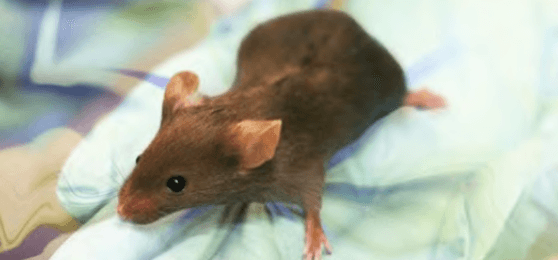 Long-term stress can have lots of
effects on the body —it can cause
chronic muscle tension, heart problems,
and fertility issues in both men and
women. Now researchers have performed
a new study in mice that they
believe reveals another effect of chronic
stress on the brain: Inflammation, which
can lead to memory loss and depression.
The researchers published their study in
the Journal of Neuroscience.
In the study, the researchers stressed
out several mice by periodically putting
a much more aggressive mouse into
their cage. After six days of exposure,
the stressed mice could no longer recall
the location of a hole to escape a maze,
which they remembered easily before
the stressful period began. “The stressed mice didn’t recall it. The mice that
weren’t stressed, they really remembered
it,” said Jonathan Godbout, a neuroscience
professor at Ohio State University
and one of the study authors in
a press release. For four weeks after the
trauma, the mice continued to cower in
corners, the equivalent of social avoidance,
a symptom of depression.
The researchers suspected that
the stress was affecting the mice’s
hippocampi, a part of the brain key
to memory and spatial navigation.
They found cells from mice’s immune
system (macrophages) in the
hippocampus, and the macrophages
were preventing the growth of more
brain cells.
Long-term stress can have lots of
effects on the body —it can cause
chronic muscle tension, heart problems,
and fertility issues in both men and
women. Now researchers have performed
a new study in mice that they
believe reveals another effect of chronic
stress on the brain: Inflammation, which
can lead to memory loss and depression.
The researchers published their study in
the Journal of Neuroscience.
In the study, the researchers stressed
out several mice by periodically putting
a much more aggressive mouse into
their cage. After six days of exposure,
the stressed mice could no longer recall
the location of a hole to escape a maze,
which they remembered easily before
the stressful period began. “The stressed mice didn’t recall it. The mice that
weren’t stressed, they really remembered
it,” said Jonathan Godbout, a neuroscience
professor at Ohio State University
and one of the study authors in
a press release. For four weeks after the
trauma, the mice continued to cower in
corners, the equivalent of social avoidance,
a symptom of depression.
The researchers suspected that
the stress was affecting the mice’s
hippocampi, a part of the brain key
to memory and spatial navigation.
They found cells from mice’s immune
system (macrophages) in the
hippocampus, and the macrophages
were preventing the growth of more
brain cells.
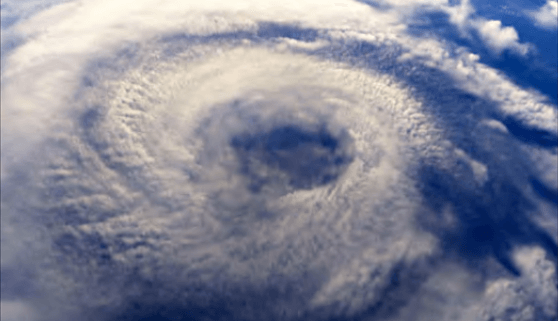 Two years ago, the University of
Notre Dame published an index revealing
which nations were more or less
likely to be affected by climate change.
Known as the Notre Dame Global Adaptation
Initiative (ND-GAIN), it’s making
the rounds again online –and its
conclusions are no less relevant today
than they were back then.
It’s a comprehensive index: It looks
at the vulnerability of each country,
as well as their readiness to adapt.
For example, what is the state of its
infrastructure, its food supply, its technological
capabilities? Is it prone to
natural disasters or political upheaval?
Are authorities prepared for a future of
climate change nightmares, or are they
distracted by other matters?
A collated map speaks for itself, but
here are the top five, ranked essentially
by subtracting their vulnerability
from their readiness. The full ranking
can be seen in the link below.
Countries most likely to “survive”
climate change:
Two years ago, the University of
Notre Dame published an index revealing
which nations were more or less
likely to be affected by climate change.
Known as the Notre Dame Global Adaptation
Initiative (ND-GAIN), it’s making
the rounds again online –and its
conclusions are no less relevant today
than they were back then.
It’s a comprehensive index: It looks
at the vulnerability of each country,
as well as their readiness to adapt.
For example, what is the state of its
infrastructure, its food supply, its technological
capabilities? Is it prone to
natural disasters or political upheaval?
Are authorities prepared for a future of
climate change nightmares, or are they
distracted by other matters?
A collated map speaks for itself, but
here are the top five, ranked essentially
by subtracting their vulnerability
from their readiness. The full ranking
can be seen in the link below.
Countries most likely to “survive”
climate change: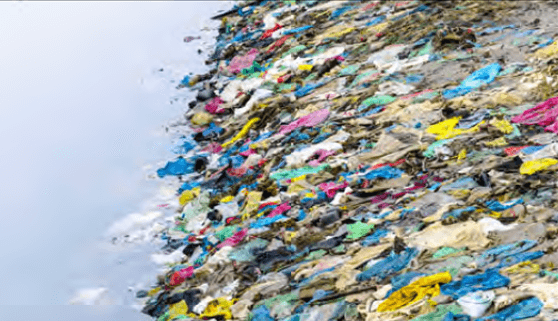 Using an innocuous plastic bag in
Kenya may well be something
you come to regret. The East African
nation has now imposed what is believed
to be the world’s toughest laws
for those caught producing, selling, or
even using single-use plastic bags, the
result of which involves being sent to
jail for four years or receiving a fine of
up to $40,000.
The country now joins more than 40
others worldwide that have initiated
similar laws prohibiting the use of
plastic bags either partly or entirely,
or introducing a tax on them, including
China, the United Kingdom, and
Rwanda. The ubiquity of the objects,
which cause a whole manner of issues
as they are thrown into land fill, the
streets, and more frequently than
not the oceans, has meant that many
nations are re-thinking their attitude
towards the bags.
Using an innocuous plastic bag in
Kenya may well be something
you come to regret. The East African
nation has now imposed what is believed
to be the world’s toughest laws
for those caught producing, selling, or
even using single-use plastic bags, the
result of which involves being sent to
jail for four years or receiving a fine of
up to $40,000.
The country now joins more than 40
others worldwide that have initiated
similar laws prohibiting the use of
plastic bags either partly or entirely,
or introducing a tax on them, including
China, the United Kingdom, and
Rwanda. The ubiquity of the objects,
which cause a whole manner of issues
as they are thrown into land fill, the
streets, and more frequently than
not the oceans, has meant that many
nations are re-thinking their attitude
towards the bags.
 In USA, high school body-shaming
has two seasons: Back-to-school
and prom. Every year, these tend to
be the peak times that teachers and
administration inform girls that their
bodies are inappropriate and need to
be covered let the sight of their shoulders
distract otherwise studious boys.
This school year, one dress code
incident has gone viral. Just a few
weeks ago, a South Carolina high
school principal told girls not to wear
leggings unless they were a size 0 or 2,
otherwise they would look fat. She was
fired shortly after and frankly, good
riddance. Finally, one school has taken
action against body shaming and sexist
dress codes in a move that every
district should emulate.
Evanston Township High School,
outside of Chicago, enacted a new
dress code policy specifically to address
issues of discrimination and body
shaming: “Staff shall enforce the dress
code consistently and in a manner that
does not reinforce or increase marginalization
or oppression of any group
based on race, sex, gender identity,
gender expression, sexual orientation,
ethnicity, religion, cultural observance,
household income or body type/size.”
Students are not allowed to wear
clothing with violent language or hate
speech, violent images or pornography,
profanity, or anything that depicts drug
or alcohol use.
In USA, high school body-shaming
has two seasons: Back-to-school
and prom. Every year, these tend to
be the peak times that teachers and
administration inform girls that their
bodies are inappropriate and need to
be covered let the sight of their shoulders
distract otherwise studious boys.
This school year, one dress code
incident has gone viral. Just a few
weeks ago, a South Carolina high
school principal told girls not to wear
leggings unless they were a size 0 or 2,
otherwise they would look fat. She was
fired shortly after and frankly, good
riddance. Finally, one school has taken
action against body shaming and sexist
dress codes in a move that every
district should emulate.
Evanston Township High School,
outside of Chicago, enacted a new
dress code policy specifically to address
issues of discrimination and body
shaming: “Staff shall enforce the dress
code consistently and in a manner that
does not reinforce or increase marginalization
or oppression of any group
based on race, sex, gender identity,
gender expression, sexual orientation,
ethnicity, religion, cultural observance,
household income or body type/size.”
Students are not allowed to wear
clothing with violent language or hate
speech, violent images or pornography,
profanity, or anything that depicts drug
or alcohol use.
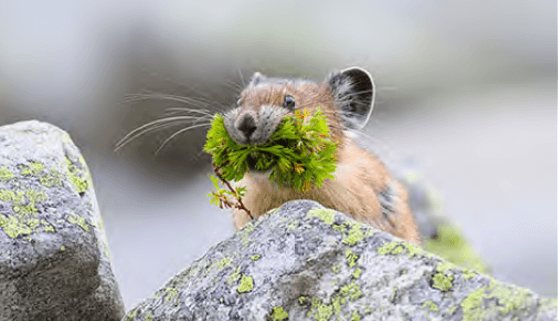 Wildlife scientists have raised
concerns about the impact of
climate change on American pikas
for some time, and the tiny mammals
have now disappeared entirely from a
large stretch of land in California.
American pikas are a small, herbivorous
relative of rabbits and hares
who live high in the mountains of the
American West. The creatures have
adapted to withstand cold climates
at high elevation on rocky mountain
slopes, and they survive by gathering
vegetation stockpiles for winter.
Unfortunately, the changes that accompany
a warming world are proving
to be disastrous for pikas, and
the adaptations that allow them to survive have become a serious problem,
making the mammals especially
vulnerable to overheating.
Biologists believe that climate
change is pushing pikas to the brink,
and now a study published in “PLOS
One” has added to the growing body
of evidence surrounding this decline.
According to the new research,
American pikas have disappeared entirely
from a 64-square-mile span of
habitat in California’s northern Sierra
Nevada mountains, extending from
Tahoe City to Truckee.
Wildlife scientists have raised
concerns about the impact of
climate change on American pikas
for some time, and the tiny mammals
have now disappeared entirely from a
large stretch of land in California.
American pikas are a small, herbivorous
relative of rabbits and hares
who live high in the mountains of the
American West. The creatures have
adapted to withstand cold climates
at high elevation on rocky mountain
slopes, and they survive by gathering
vegetation stockpiles for winter.
Unfortunately, the changes that accompany
a warming world are proving
to be disastrous for pikas, and
the adaptations that allow them to survive have become a serious problem,
making the mammals especially
vulnerable to overheating.
Biologists believe that climate
change is pushing pikas to the brink,
and now a study published in “PLOS
One” has added to the growing body
of evidence surrounding this decline.
According to the new research,
American pikas have disappeared entirely
from a 64-square-mile span of
habitat in California’s northern Sierra
Nevada mountains, extending from
Tahoe City to Truckee.

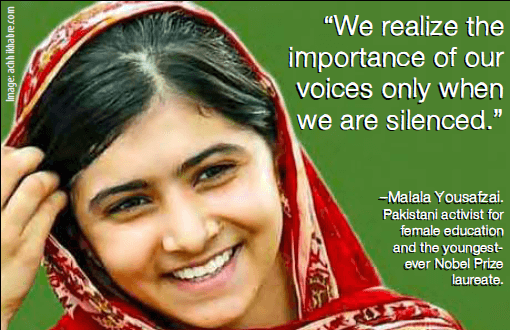 “We realize the
importance of our
voices only when
we are silenced.”
“We realize the
importance of our
voices only when
we are silenced.”
 Magellan. Night Sky Projector.
Turn your ceiling into a window to the
universe. faradayscienceshop.com
Magellan. Night Sky Projector.
Turn your ceiling into a window to the
universe. faradayscienceshop.com
 Japanese Water Jug. Be sure
to impress your guests with this jug
designed in 1955. store.moma.org
Take a look at this
Japanese Water Jug. Be sure
to impress your guests with this jug
designed in 1955. store.moma.org
Take a look at this
 Aurora Clock. Changes its saturated
colors during 25-second increments.
Made of hand-polished aluminum,
chrome and acrylic. store.moma.org
Take a look at this
Aurora Clock. Changes its saturated
colors during 25-second increments.
Made of hand-polished aluminum,
chrome and acrylic. store.moma.org
Take a look at this

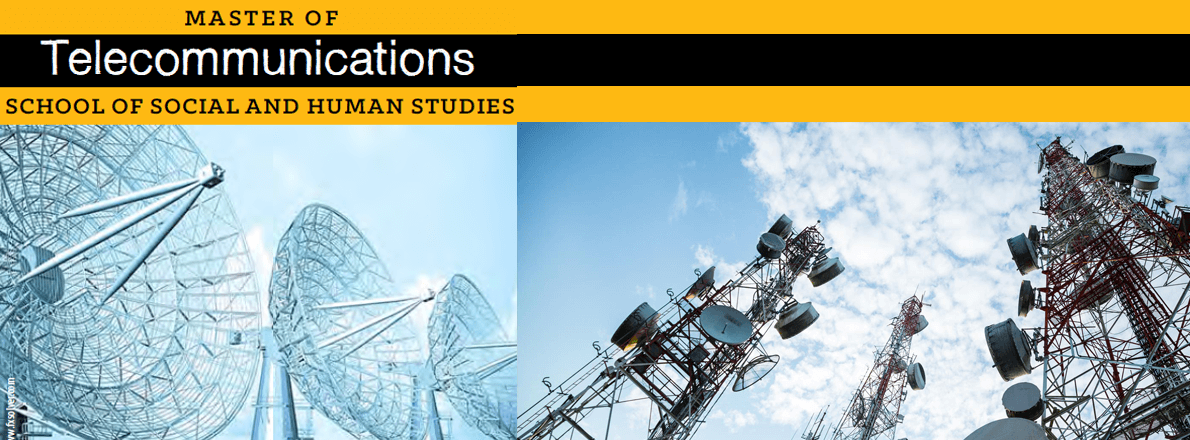 The Master of Telecommunications
(MS, TEL.) program objective
is to provide students with the
professional skills needed to advance
a successful career in telecommunications;
the students will be technically
savvy, business-minded, and acutely
in tune with the policy issues that surround
a constantly changing industry.
The Master of Telecommunications
program is offered online via distance
learning. After evaluating both
academic record and life experience,
AIU staff working in conjunction with
Faculty and Academic Advisors will
assist students in setting up a custommade
program, designed on an individual
basis. This flexibility to meet
student needs is seldom found in other
distance learning programs. Our online
program does not require all students
to take the same subjects/courses, use
the same books, or learning materials.
Instead, the online Master of
Telecommunications curriculum is
designed individually by the student
and academic advisor. It specifically
addresses strengths and weaknesses
with respect to market opportunities in
the student’s major and intended field of work. Understanding that industry
and geographic factors should influence
the content of the curriculum
instead of a standardized one-fits-all
design is the hallmark of AIU’s unique
approach to adult education. This
philosophy addresses the dynamic and
constantly changing environment of
working professionals by helping adult
students in reaching their professional
and personal goals within the scope of
the degree program.
The Master of Telecommunications
(MS, TEL.) program objective
is to provide students with the
professional skills needed to advance
a successful career in telecommunications;
the students will be technically
savvy, business-minded, and acutely
in tune with the policy issues that surround
a constantly changing industry.
The Master of Telecommunications
program is offered online via distance
learning. After evaluating both
academic record and life experience,
AIU staff working in conjunction with
Faculty and Academic Advisors will
assist students in setting up a custommade
program, designed on an individual
basis. This flexibility to meet
student needs is seldom found in other
distance learning programs. Our online
program does not require all students
to take the same subjects/courses, use
the same books, or learning materials.
Instead, the online Master of
Telecommunications curriculum is
designed individually by the student
and academic advisor. It specifically
addresses strengths and weaknesses
with respect to market opportunities in
the student’s major and intended field of work. Understanding that industry
and geographic factors should influence
the content of the curriculum
instead of a standardized one-fits-all
design is the hallmark of AIU’s unique
approach to adult education. This
philosophy addresses the dynamic and
constantly changing environment of
working professionals by helping adult
students in reaching their professional
and personal goals within the scope of
the degree program.
 Atlantic International University is accredited by the Accreditation Service for International
Schools, Colleges and Universities (ASIC). ASIC Accreditation is an internationally
renowned quality standard for colleges and universities. Visit ASIC’s Directory of Accredited
Colleges and Universities. ASIC is a member of CHEA International Quality Group (CIQG) in
the USA, an approved accreditation body by the Ministerial Department of the Home Office in the UK,
and is listed in the International Directory of the Council for Higher Education Accreditation (CHEA).
AIU meets all state and federal laws as a degree-granting institution in the United States and the State of
Hawaii. The University was legally established by corporate charter in 1998 and is in good standing.
Atlantic International University is accredited by the Accreditation Service for International
Schools, Colleges and Universities (ASIC). ASIC Accreditation is an internationally
renowned quality standard for colleges and universities. Visit ASIC’s Directory of Accredited
Colleges and Universities. ASIC is a member of CHEA International Quality Group (CIQG) in
the USA, an approved accreditation body by the Ministerial Department of the Home Office in the UK,
and is listed in the International Directory of the Council for Higher Education Accreditation (CHEA).
AIU meets all state and federal laws as a degree-granting institution in the United States and the State of
Hawaii. The University was legally established by corporate charter in 1998 and is in good standing.
 If a student outside the U.S. wishes to carry
out a particular procedure within a country’s
Department of Education regarding their
degree earned at AIU, such procedures are to
be carried out independently by the student.
AIU respects the unique rules and regulations
of each country and does not intervene or
influence the respective authorities. We
recommend prospective students who
intend to carry out such procedures
outside the U.S. to verify in detail the
steps and requirements needed in
order to be fully informed.
If a student outside the U.S. wishes to carry
out a particular procedure within a country’s
Department of Education regarding their
degree earned at AIU, such procedures are to
be carried out independently by the student.
AIU respects the unique rules and regulations
of each country and does not intervene or
influence the respective authorities. We
recommend prospective students who
intend to carry out such procedures
outside the U.S. to verify in detail the
steps and requirements needed in
order to be fully informed.
 The School of Business and Economics
allows aspiring and practicing
professionals, managers, and entrepreneurs
in the private and public sectors
to complete a self paced distance
learning degree program of the highest
academic standard.
The ultimate goal is to empower
learners and help them take advantage
of the enormous array of resources
from the world environment in order
to eliminate the current continuum of
poverty and limitations.
Degree programs are designed for
those students whose professional experience has been in business,
marketing, administration, economics,
finance and management.
The School of Business and Economics
allows aspiring and practicing
professionals, managers, and entrepreneurs
in the private and public sectors
to complete a self paced distance
learning degree program of the highest
academic standard.
The ultimate goal is to empower
learners and help them take advantage
of the enormous array of resources
from the world environment in order
to eliminate the current continuum of
poverty and limitations.
Degree programs are designed for
those students whose professional experience has been in business,
marketing, administration, economics,
finance and management.
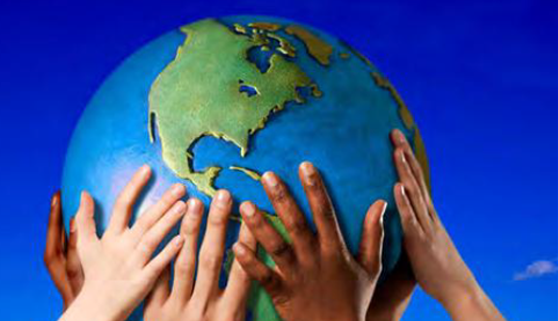 The School of Social and Human Studies
is focused on to the development of
studies which instill a core commitment
to building a society based on social and
economic justice and enhancing opportunities
for human well being.
The founding principles lie on the
basic right of education as outlined
in the Declaration of Human Rights.
We instill in our students a sense of
confidence and self reliance in their
ability to access the vast opportunities
available through information channels,
the world wide web, private, public,
nonprofit, and nongovernmental organizations in an ever expanding
global community.
Degree programs are aimed towards
those whose professional life has been
related to social and human behavior,
with the arts, or with cultural studies.
The School of Social and Human Studies
is focused on to the development of
studies which instill a core commitment
to building a society based on social and
economic justice and enhancing opportunities
for human well being.
The founding principles lie on the
basic right of education as outlined
in the Declaration of Human Rights.
We instill in our students a sense of
confidence and self reliance in their
ability to access the vast opportunities
available through information channels,
the world wide web, private, public,
nonprofit, and nongovernmental organizations in an ever expanding
global community.
Degree programs are aimed towards
those whose professional life has been
related to social and human behavior,
with the arts, or with cultural studies.
 The School of Science and Engineering
seeks to provide dynamic, integrated,
and challenging degree programs
designed for those whose experience
is in industrial research, scientific production,
engineering and the general
sciences. Our system for research and
education will keep us apace with the
twenty-first century reach scientific
advance in an environmentally and
ecologically responsible manner to allow
for the sustainability of the human
population. We will foster among our
students a demand for ethical behavior,
an appreciation for diversity, an understanding
of scientific investigation,
The School of Science and Engineering
seeks to provide dynamic, integrated,
and challenging degree programs
designed for those whose experience
is in industrial research, scientific production,
engineering and the general
sciences. Our system for research and
education will keep us apace with the
twenty-first century reach scientific
advance in an environmentally and
ecologically responsible manner to allow
for the sustainability of the human
population. We will foster among our
students a demand for ethical behavior,
an appreciation for diversity, an understanding
of scientific investigation,
 With access to a global catalog created and maintained collectively by more than
9,000 participating institutions, AIU students have secured excellent research
tools for their study programs.
With access to a global catalog created and maintained collectively by more than
9,000 participating institutions, AIU students have secured excellent research
tools for their study programs.